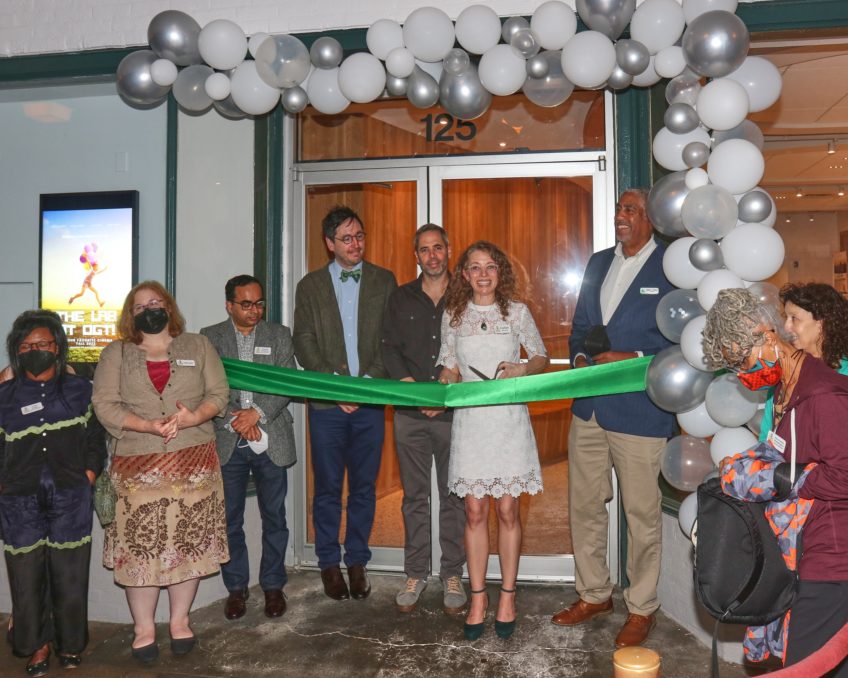Around 8:30 p.m. on Saturday, May 14, Old Greenbelt Theatre’s (OGT) Executive Director Caitlin McGrath cut through a gleaming, oversized green ribbon, officially opening OGT’s newest space: the Screening Room and Media Arts Literacy Lab. Surrounded – in the newly accessible doorway – by Friends of Greenbelt Theatre (FOGT) board members and Mayor Emmett Jordan, McGrath then invited the grand opening crowd to tour the new space. OGT staff cheerfully answered questions while the 100 or so attendees enjoyed light refreshments as they explored the visually striking new addition to the theater.
The opening celebration event actually began earlier in the evening in the main auditorium, with Jordan praising McGrath for her vision in creating yet another local venue that reflects “the heart and soul of community in Greenbelt.” McGrath, in turn, gave heartfelt thanks to the local, county and state officials who provided funding, the FOGT board, the OGT staff and the many individual donors who made her dream of “a cinema that belongs to all of us” come true.
The central event, however, was an hour-long conversation between McGrath and National Public Radio (NPR) arts and movie critic Bob Mondello. Seated on the main stage and lit by the theater’s logo on the movie screen behind them, Mondello recounted his early years going to movies and plays in the D.C. area. A Bethesda native, Mondello began honing his writing skills as an arts critic for the Diamondback newspaper while a student at the University of Maryland. He wrote theater and film reviews for a variety of outlets, including the Washington City Paper, eventually joining NPR in 1984.
Mondello observed that his first love as a child was theater – but he was also an avid moviegoer. Other than taking a basic film history course while at the university, his passion for and understanding of movies came from watching as many as possible in local theaters. Just out of college, he worked in advertising for Paul Roth’s local theater chain, learning the nuts and bolts of the movie theater business. “Paul Roth taught me that a movie experience is special,” he said, “and should be pitched that way.”
As increasingly large multiplex theaters began to replace smaller local chains, Mondello began to appreciate the role that arthouse theaters played in promoting independent and foreign films that rarely played in these larger theaters. Currently reviewing about 65 films a year for NPR – and viewing at least 200 or so – he watches films in a variety of venues. He pointed out that arthouse theaters – like OGT – have distinctive personalities, unlike the big chains.
Mondello believes that as long as audiences want to gather to collectively watch films, cinema will survive. But, he added, “I don’t know what we would do without you.”

